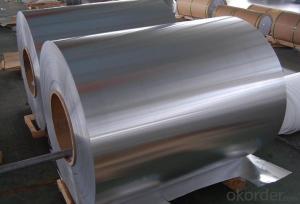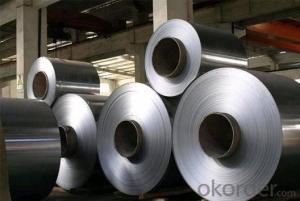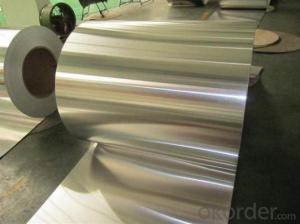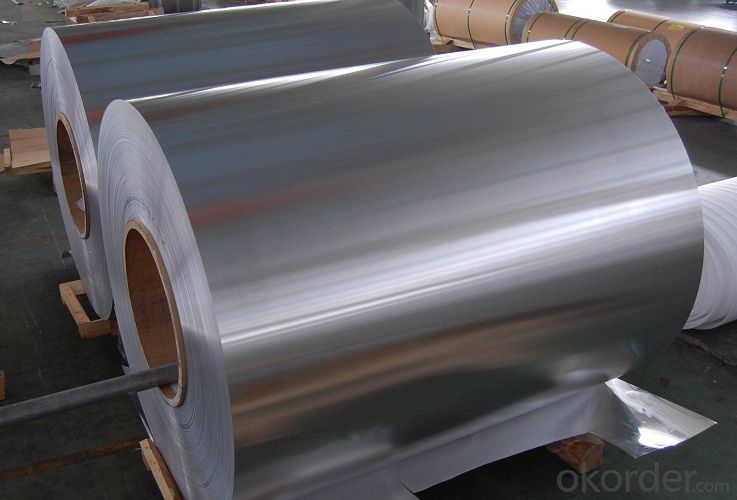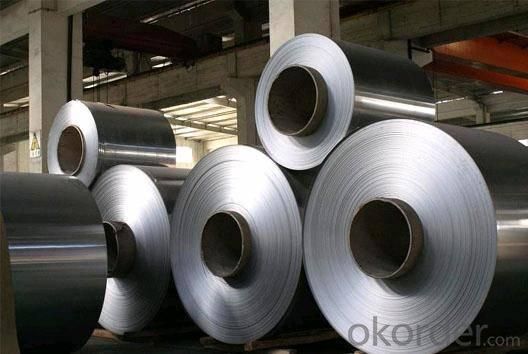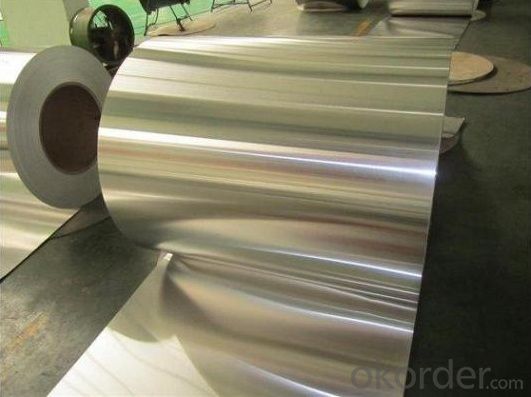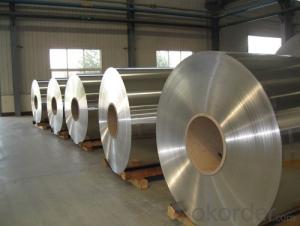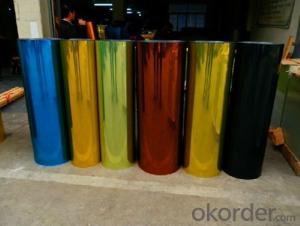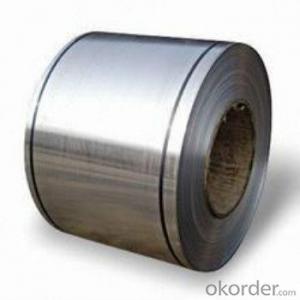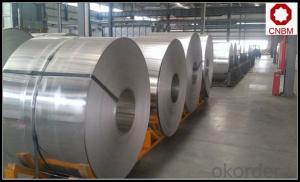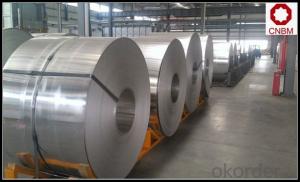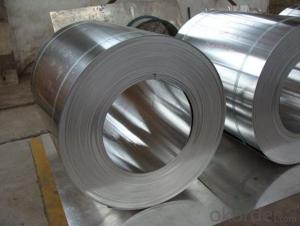HVAC Aluminum Coils - Alloy 1050, 1100, 3003 Mill Finish Aluminum Coil
- Loading Port:
- Shanghai
- Payment Terms:
- TT OR LC
- Min Order Qty:
- 2.5
- Supply Capability:
- 5000 m.t./month
OKorder Service Pledge
OKorder Financial Service
You Might Also Like
Specification
Alloy 1050,1100, 3003 Mill Finish Aluminum Coil
l Product Introduction
Aluminium Coil is widely used in manufacturing aluminum thin sheet and aluminum foil. It is suitable for further machining with original standard quality. It is easy to be controlled and be manufactured to according to requirements.
l Product Specification
Perforated/Slitting Mill Finish Aluminum Strip Coil | |
Grade and Temper | Alloys: 1050, 1100, 3003, 3004 3005, 3105, 5005, 5052, 6061,6083, 8011,etc Temper: 0-H112 |
Widths | 35mm – 2,450 mm available |
Thickness | 0.09mm – 150mm |
Treatment | Mill Finish |
Coil Specifications | I.D.: 405mm, 505mm O.D.: 800mm - 1270mm |
Packing Detail | Wooden pallet either eye to wall or eye to sky |
Application | Perforated Aluminum Ceiling Panel, Conner Bead, sifter for mechanical equipment and Fencing, etc. |
l Packaging & Delivery
Packaging detail: Standard seaworthy exporting carton, Wooden pallets, waterproof paper and plastic coverage or as customer's requirements
Delivery detail: about 25 days from received oiginal L/C or advanced payment
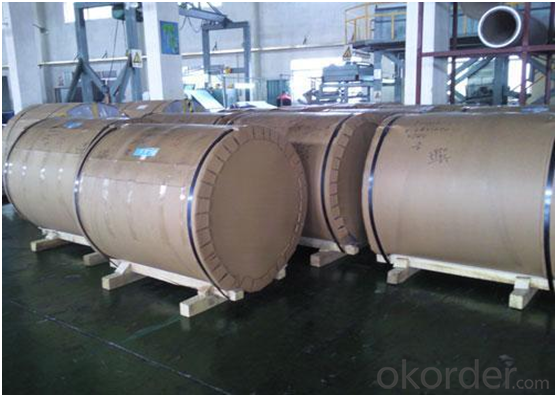
l Company Profile
CNBM International Corporation, China National Building Materials (Group) Corporation, is one of the largest companies in China building material & equipment industry, with 42,800 employees and sales in 2005 of US Dollar 4.395 billion. In 2006, China National Building Material Company Limited was listed on Hong Kong Stock Market with the stock code as 3323.
Aluminium coil is one of the popular product in the market of CNBM. With advanced technology and equipment, CNBM has sold its hight quality color coated aluminium coil to the world.
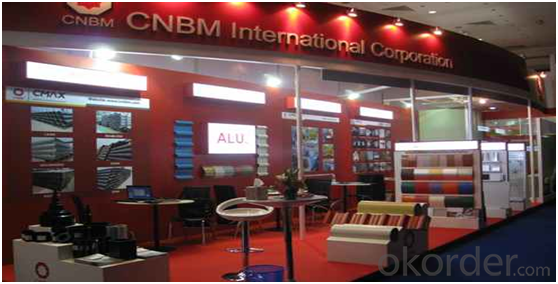
l CNBM World Wide
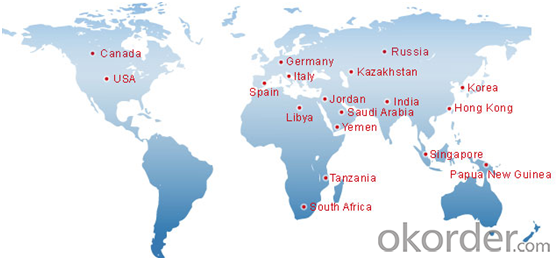
l Product Images
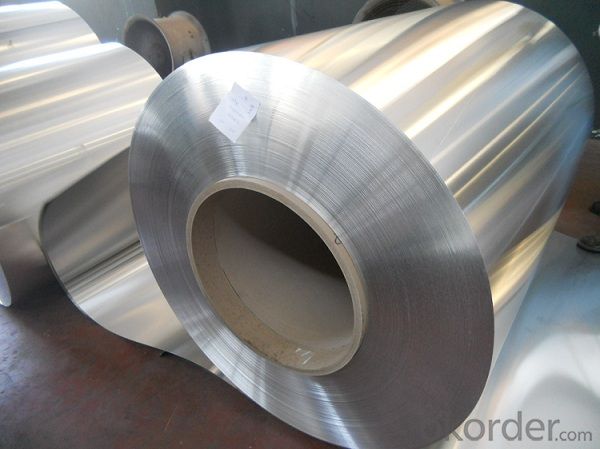
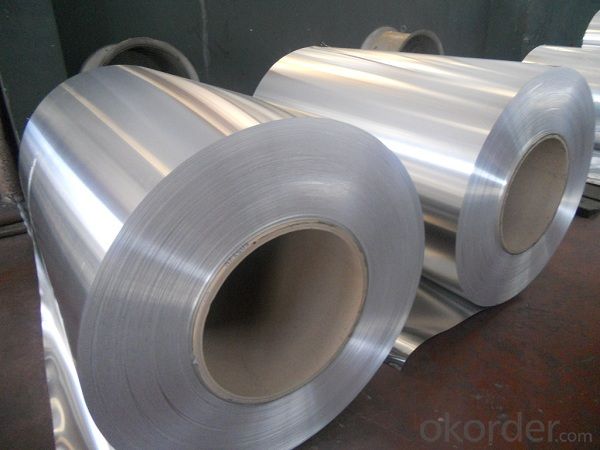
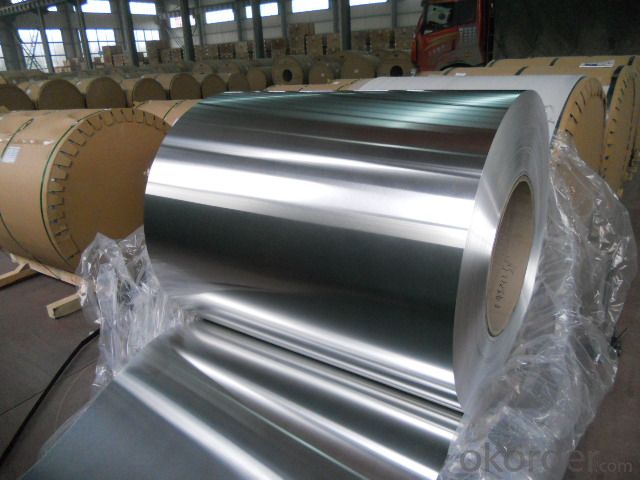
l Certificates
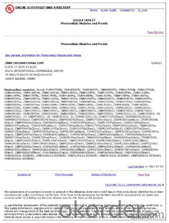
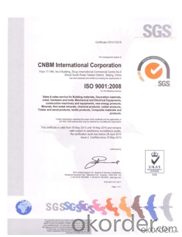
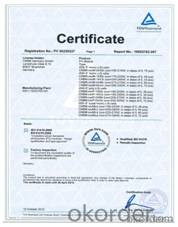
l FAQ
Q: Do you provide free samples?
A: Yes, free samples will be sent to you on freight at destination.
Q: Can I get your latest products catalogue?
A: Yes, it will be sent to you in no time.
Q: What is the MOQ?
A: 2.5 tons
Q: What are your payment terms?
A: We accept L/C, T/T.
- Q: How do aluminum coils contribute to energy-efficient appliance manufacturing?
- Aluminum coils play a significant role in energy-efficient appliance manufacturing due to their unique properties and benefits. Firstly, aluminum is a lightweight material, which means that using aluminum coils in appliances reduces their overall weight. This, in turn, allows for easier transportation and installation, resulting in reduced energy consumption during transportation and reduced strain on the appliance itself. Furthermore, aluminum has excellent thermal conductivity properties, which are crucial in energy-efficient appliance design. When used in coils, aluminum enables efficient and rapid heat transfer, allowing appliances such as refrigerators, air conditioners, and heat pumps to cool or heat more effectively while consuming less energy. This enhanced thermal efficiency not only reduces energy consumption but also improves the overall performance and lifespan of the appliance. Additionally, aluminum coils are highly corrosion-resistant, making them ideal for appliances that come into contact with moisture or humid environments. By using aluminum coils, manufacturers can ensure that their appliances are durable and long-lasting, avoiding the need for frequent repairs or replacements. This durability reduces energy waste associated with the manufacturing and disposal of appliances. Moreover, aluminum is a highly recyclable material, with the potential for infinite recycling without losing its properties. By incorporating aluminum coils into appliance manufacturing, manufacturers can promote sustainability and reduce their carbon footprint. The use of recycled aluminum also requires significantly less energy compared to producing new aluminum, further contributing to energy efficiency. In conclusion, aluminum coils contribute to energy-efficient appliance manufacturing through their lightweight nature, excellent thermal conductivity, corrosion resistance, recyclability, and overall durability. By utilizing these advantages, manufacturers can create appliances that are not only more energy-efficient but also more sustainable and long-lasting, benefiting both consumers and the environment.
- Q: Can aluminum coils be used in the production of aluminum wire?
- Yes, aluminum coils can be used in the production of aluminum wire. Aluminum coils are often used as a starting material in the wire manufacturing process. The coils are typically unwound and drawn through a series of dies to reduce their diameter and increase their length, resulting in a thin and flexible aluminum wire.
- Q: How do aluminum coils contribute to energy-efficient lighting?
- Aluminum coils contribute to energy-efficient lighting by serving as the primary material for heat sinks in LED light bulbs. These heat sinks are essential in dissipating the excess heat generated by the LED chips, thereby preventing overheating and ensuring optimal performance, longevity, and efficiency of the lighting system.
- Q: Can aluminum coils be used in high-altitude environments?
- Indeed, the utilization of aluminum coils is feasible in high-altitude settings. Thanks to its lightweight and resistance to corrosion, aluminum is a fitting material for various purposes, including in high-altitude scenarios. Aluminum coils are often employed in air conditioning systems, heat exchangers, and refrigeration units, all of which can operate efficiently at high altitudes. The high strength-to-weight ratio of aluminum enables it to endure the harsh conditions encountered at high altitudes, encompassing low temperatures, strong winds, and low atmospheric pressure. Moreover, aluminum is non-magnetic, providing an advantage in specific high-altitude applications like aerospace and satellite technologies. Additionally, aluminum exhibits exceptional thermal conductivity, facilitating efficient heat transfer and rendering it perfect for deployment in cooling systems functioning in high-altitude environments. Its resistance to corrosion also ensures durability and the ability to withstand the impact of moisture, which can be prevalent in such settings. All in all, owing to their lightweight nature, resistance to corrosion, thermal conductivity, and strength, aluminum coils serve as a dependable and appropriate choice for utilization in high-altitude environments.
- Q: How to calculate the weight of strips with the weight of aluminum coil known?
- Thickness*width*length=weight/density, length=weight/(density*thickness*width).Ps: Keep unit the same.
- Q: Are there any special considerations for handling and storing aluminum coil scraps?
- Yes, there are specific considerations for handling and storing aluminum coil scraps. Firstly, it is important to handle aluminum coil scraps with care to avoid any injuries. These scraps can have sharp edges, so workers should wear appropriate protective gear, such as gloves and safety glasses, when handling them. When storing aluminum coil scraps, it is crucial to keep them in a dry and well-ventilated area. Moisture can cause the aluminum to corrode, leading to degradation of the material. Storing the scraps in a covered area or using moisture-absorbing materials can help prevent this. Additionally, it is essential to segregate aluminum coil scraps from other materials, especially those that can cause a chemical reaction or contamination. This is particularly important if the aluminum coil scraps are coated or treated with other substances. Furthermore, it is advisable to stack and store the aluminum coil scraps properly to prevent any damage or accidents. Stacking them in a stable manner, using appropriate equipment such as pallets or racking systems, can reduce the risk of collapse or shifting. Lastly, it is important to follow local regulations and guidelines for handling and storing aluminum coil scraps. These regulations may vary depending on the location and industry, so it is essential to stay informed and comply with any specific requirements. By following these considerations, companies can ensure the safe handling, storage, and preservation of aluminum coil scraps, minimizing the risk of accidents, damage, and deterioration.
- Q: Can aluminum coils be used in high-altitude environments?
- Yes, aluminum coils can be used in high-altitude environments. Aluminum is a lightweight and corrosion-resistant material, making it suitable for various applications, including in high-altitude environments. Aluminum coils are commonly used in air conditioning systems, heat exchangers, and refrigeration units, which can function efficiently at high altitudes. Aluminum's high strength-to-weight ratio allows it to withstand the extreme conditions found at high altitudes, including low temperatures, high winds, and low atmospheric pressure. Additionally, aluminum is non-magnetic, which is advantageous in certain high-altitude applications, such as aerospace and satellite technologies. Furthermore, aluminum has excellent thermal conductivity, allowing it to efficiently transfer heat, making it ideal for use in cooling systems operating in high-altitude environments. Its corrosion resistance properties also make it durable and able to withstand the effects of moisture, which can be prevalent in such environments. Overall, aluminum coils are a reliable and suitable choice for use in high-altitude environments due to their lightweight, corrosion resistance, thermal conductivity, and strength.
- Q: Can aluminum coils be used in HVAC systems?
- Yes, aluminum coils can be used in HVAC systems. In fact, aluminum coils are commonly used as an alternative to traditional copper coils in many HVAC applications. Aluminum coils offer several benefits such as improved energy efficiency, corrosion resistance, and lighter weight, making them a popular choice for HVAC systems.
- Q: I know this question is not so bright, but I am very curious why do we recycle aluminum cans? Is it that they are not biodegradable?
- Save the Rainforest! Recycle Aluminum! Did you know that aluminum comes from the ore Bauxite? And that bauxite is mined in the rainforest? Every time you throw away an aluminum can, that's one less that is being recycled, and one more can's worth of bauxite that needs to be mined from the rainforest. The bad thing about mining bauxite, just like any other ore, is that it is in the ground. Since bauxite is mined in the rainforest, there are tons of trees growing on top. In order to get to the bauxite, the trees have to be clear-cut and are usually burned since there main opperation is to mine the ore, not harvest lumber. This puts a lot of pollution into the air from the trees burning and the fossil fuels spent for the machinery to take them down. Once the land is clear, mining begins, burning even more fossil fuels. Then the ore is shipped to a facility that turns the ore into aluminum (another energy-expensive process) and then the aluminum is finally shiped to us (again, more energy, i.e. fossil fuels spent) so that we can then, finally, make cans out of them. So why don't we just make new cans out of the old ones when we are done with them? They are already here, no need for shipping. They are free, just need to be trasported to the recycling facility. And we don't have to cut rainforests to get more aluminum if we use what we've already got. Some day we will be mining our landfills because we've irresponsibly and selfishly used up our resources elsewhere. Hope this answers your question and gives you the motivation to start recycling!
- Q: Can aluminum coils be used for magnetic purposes?
- No, aluminum coils cannot be used for magnetic purposes as aluminum is not a magnetic material.
Send your message to us
HVAC Aluminum Coils - Alloy 1050, 1100, 3003 Mill Finish Aluminum Coil
- Loading Port:
- Shanghai
- Payment Terms:
- TT OR LC
- Min Order Qty:
- 2.5
- Supply Capability:
- 5000 m.t./month
OKorder Service Pledge
OKorder Financial Service
Similar products
Hot products
Hot Searches
Related keywords
